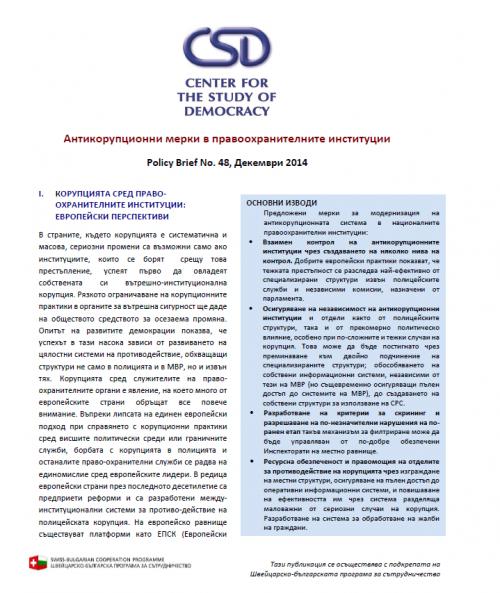Политически брифинг № 48 на CSD: Антикорупционни мерки в правоохранителните институции
CSD Policy Brief № 48: Anti-corruption measures in law-enforcement institutions
Author(s): Author Not Specified
Subject(s): Politics / Political Sciences, Social Sciences, Economy, Law, Constitution, Jurisprudence
Published by: Център за изследване на демокрацията
Summary/Abstract: In countries with endemic corruption, integrity reforms can only be successful if anti-corruption institutions succeed in tackling internal corruption challenges. A sharp decline of corruption in law enforcement would provide society with the necessary tools to pursue tangible change. The experience of established democracies is that a successful transformation depends not simply on individual measures but rather on the introduction of sets of effective anti-corruption measures across the entire public administration. Corruption among lawenforcement officers has been viewed with an increasing concern by the authorities and the public in many European states. As a result, while no common approach has ever been tested with respect to the judiciary, elected politicians or the customs, countering police corruption has become an all-European effort. During the last decade, several European countries developed multi-institutional systems for police integrity. On EU level, platforms like the European Partners against Corruption (EPAC) were introduced, enabling specialised anti-corruption institutions to cooperate and share experience. In addition, Europol, Interpol and the UN developed and shared the blueprints of common standards and good practices in preventing police corruption.
Series: Center for the Study of Democracy - CSD Policy Briefs
- Page Count: 8
- Publication Year: 2014
- Language: Bulgarian
- Content File-PDF

